
"All You Zombies" is a song by American rock band The Hooters, written by the band's founding members Eric Bazilian and Rob Hyman. It was first recorded live and released as a single in 1982. It was subsequently included on the band's debut album Amore (1983) and an extended version of the song was included on their second album Nervous Night (1985). This version was released as a single in 1985 and reached No. 58 on the US Billboard Hot 100. It also charted within the top 20 in Germany and New Zealand, but was most successful in Australia, where it reached Number 8 on the charts in 1985.

The Hooters are an American rock band from Philadelphia, Pennsylvania. The band combines elements of rock, reggae, ska, and folk music to create its sound.

"Money Changes Everything" is a song by American rock band the Brains from their eponymous debut studio album (1980). Originally released in 1978, the song was reissued as the lead single from the album in 1980, by Mercury Records. Frontman Tom Gray is credited as the sole writer of the song, while production was collectively helmed by the Brains and Bruce Baxter. The song was popularized in 1984 by Cyndi Lauper, who released a cover version of the song as a single from her debut studio album, She's So Unusual (1983).
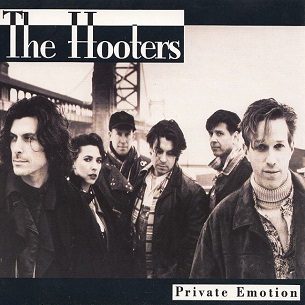
"Private Emotion" is a song recorded by American band The Hooters for their fifth studio album, Out of Body (1993). The song was written by Eric Bazilian and Rob Hyman, while the production was handled by Bazilian, Joe Hardy, and Hyman. It was released by MCA Records as the third single from the album in 1993. A ballad, using mandolin and Hammond organ, it is a love song that expresses a fresh emotion through an extreme desire to share love. The song received widely positive reviews from music critics, who complimented its use of instruments and Bazilian's vocal. A German-language version of the song, entitled "Heimliche Sehnsucht" was released in Germany in 1994.

Robert Andrew Hyman is an American singer, songwriter, keyboard and accordion player, producer, arranger and recording studio owner, best known for being a founding member of the rock band The Hooters.
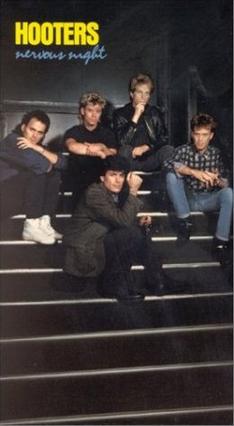
Nervous Night is a 1986 film starring American rock band The Hooters and directed by John Charles Jopson.
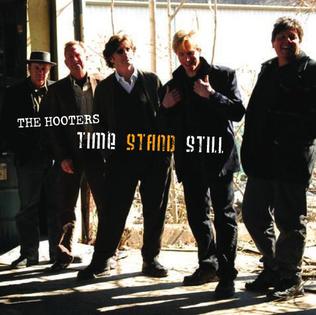
Time Stand Still is the sixth studio album by American rock band the Hooters, released in Europe on September 14, 2007, and released in the US on February 5, 2008.

One Way Home is the third studio album by American rock band the Hooters, released in 1987 by Columbia Records. The album peaked at #27 on the Billboard 200 chart on August 29, 1987.
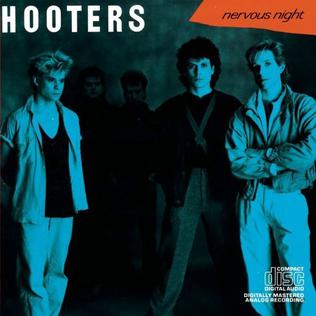
Nervous Night is the second studio album by American rock band the Hooters, released in May 1985 by Columbia Records and on CBS Records in Europe. The album features two of the band's biggest and best-known hits, "And We Danced" and "Day by Day", as well as the minor hit, "All You Zombies", which was a rerecorded version of a single that had first been released in 1982.
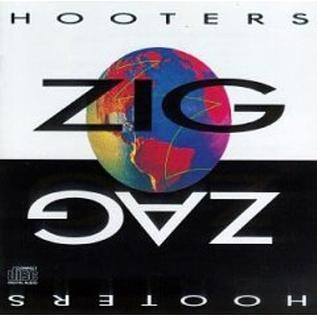
Zig Zag is the fourth studio album by American rock band the Hooters, released in 1989 by Columbia Records.
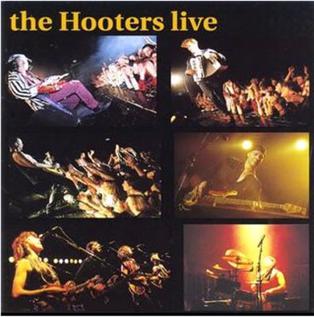
The Hooters Live is the first live album by American rock band the Hooters released in 1994 by MCA Records. It contains eleven tracks recorded live in Germany and two newly recorded studio tracks.
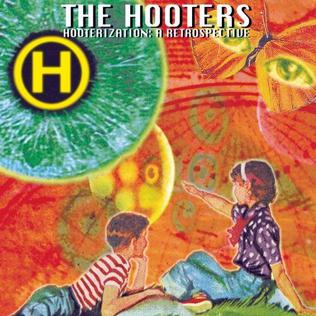
Hooterization: A Retrospective is a compilation album by American rock band the Hooters and was released in 1996 by Columbia Records.
Richard E. Chertoff is an American five-time Grammy-nominated producer responsible for such hits as Joan Osborne's "One of Us", Cyndi Lauper's "Girls Just Want to Have Fun" and "Time After Time" and Sophie B. Hawkins' "Damn I Wish I Was Your Lover". Both Cyndi Lauper's album She's So Unusual and Joan Osborne's album Relish were debut albums that garnered multi-platinum sales and multiple Grammy nominations. Chertoff was nominated twice for 'album of the year', twice for 'record of the year' and also for 'producer of the year.'

Both Sides Live is a 2-CD live album by American rock band the Hooters, released in November 2008.

Never Enough is the debut album by former Scandal singer Patty Smyth. It was released in 1987 on Columbia Records three years after the band's breakup in 1984.
Mindy Jostyn was an American singer and multi-instrumentalist.
Largo is an Americana music project and album produced by Rick Chertoff and Rob Hyman and released by Polygram in 1998. It was co-written by them with Eric Bazilian and David Forman. The title is taken from the second movement of Antonín Dvořák's New World Symphony, and the project is considered "loosely inspired" by the symphony. The album has several interpretations of Dvorak's piece, performed by musicians such as The Chieftains and Garth Hudson.
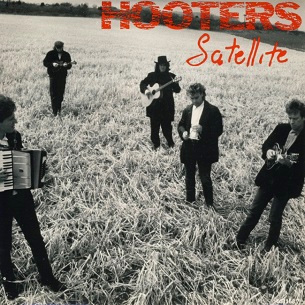
"Satellite" is a song by American rock band The Hooters, which was released in 1987 as the second single from their third studio album One Way Home. The song was written by Rob Hyman, Eric Bazilian and Rick Chertoff, and produced by Chertoff. "Satellite" reached No. 61 on the US Billboard Hot 100 and No. 22 on the UK Singles Chart, their only song to chart there.

"Twenty Five Hours a Day" is a song by American rock band The Hooters, which was released in 1993 as the lead single from their fifth studio album Out of Body. The song was written by Rob Hyman, Eric Bazilian and Jerry Lynn Williams, and produced by Joe Hardy, Bazilian and Hyman.

"Boys Will Be Boys" is a song by American rock band The Hooters, which was released in 1993 as the second single from their fifth studio album Out of Body. The song was written by Rob Hyman, Eric Bazilian and Cyndi Lauper, and produced by Joe Hardy, Bazilian and Hyman. Lauper also provides guest vocals on the song.

















